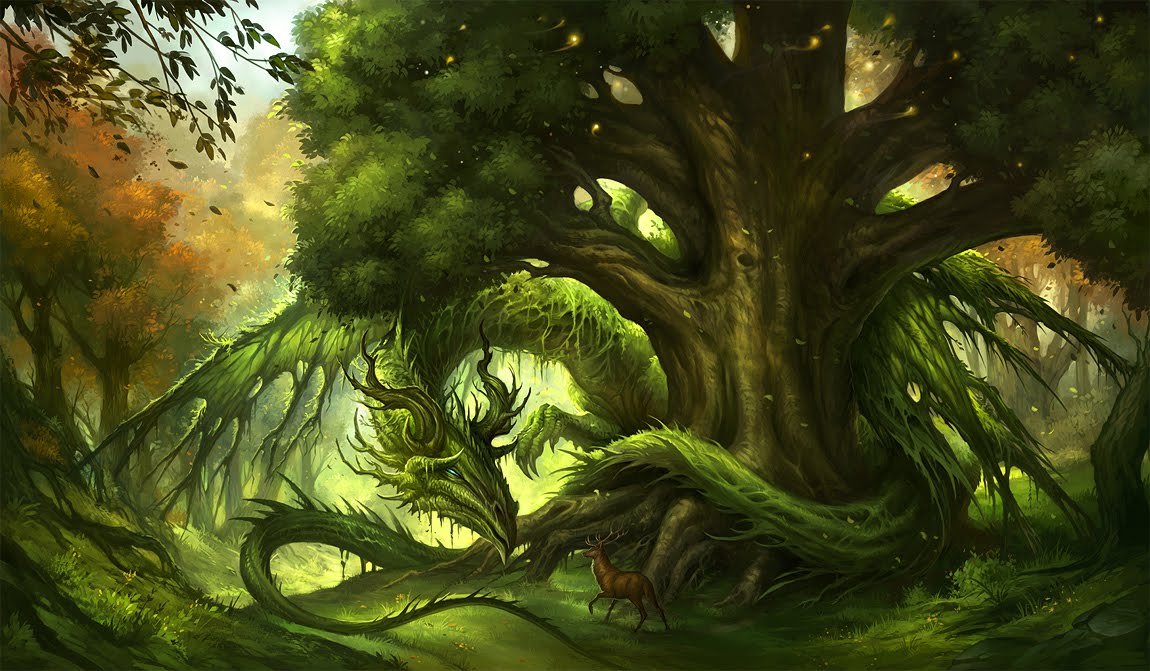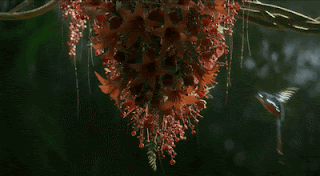Kwaidan~Jiki Ninki~Man-Eating Goblin---
 |
Jiki Ninki
Man eating Goblin
behind the sheet |
In the Japanese Culture, they have quite an interesting and full tales of legends in their past.
So I thought I would give you a few since some are a bit on the scary side and Halloween is just around the corner. I have done a few tales of the legends/Myths of the Japanese Culture before and some have been even a bit too scary for me. However, since it is just a week till O's Halloween Eve I thought I would do a few stories as well as the movies that I have put on my blog for you my dears...
This tale is a rather creepy tale involving entrenched folk superstition, with Buddhist theology and Karmic principles of retribution for evil deeds that were done. As I have found in all Japanese legends there is always a lesson or retribution to some that has been wrong.... In this case, the Notion of a Jiki Ninki or Flesh-eating Goblin appears in several forms within the Japanese folk tales. As for the tale, it is very old and as for the original tale it is said to conjure up folks skin to tingles at the thought of encountering this dilapidated shrine hermitages along a darkened mountainous passages.
Here's is why...
The Tale started in 1904 When Muso Kokushi a priest of the Zen was sent journeying alone through the province of Mino while the priest lost his way through a mountain range district where there was nobody to direct him which way to go. For a very long time, the priest Muso Kokushi just wandered about helplessly and he was beginning to have despair in his thoughts about finding shelter for the night when he perceived on the top of a hill that were lighted by the last rays of the sun, one of those little hermitages, called anjitsu which were built for solitary priests. As the priest Muso Kokushi can to the old solitary building it was a bit ruinous in its condition, however, the priest Kokushi was eagerly and happy to have found a shelter. He did find that it was already inhabited by a very old aged priest, but that didn't stop him from begging the favor of lodging from the cold of night. However, the old age priest that inhabited the anjitsu harshly refused Mouso Kokushi; but he directed Muso to a certain
hamlet in the valley adjoining where lodging and food would be obtained. After making his way down the mountain, Muso found his way to the hamlet, which consisted of less than a dozen farm cottages and he was kindly received at the dwelling of the headmaster of the village. When he was kindly received at the dwelling of the head of the hamlet village, forty to fifty people were assembled in the area when Muso's arrived. But he was shown into a tiny small separate room, where he was promptly supplied with food and bedding. Odd yet being very tired, he lay down to rest at an early hour; but a little before midnight he was roused from his sleep by a sound of loud weeping in the next room. This is what happened next! the sliding screens were gently pushed apart from his room and a young man carrying a lighted lantern entered Muso's room, respectfully saluted him and said, 'Reverend Sir, it is my painful duty to tell you that I am not the responsible head of this house. Yesterday I was only the eldest son, but when you came here, tired as you were, we did not wish that you should feel embarrassed in anyway. Therefore, we didn't tell you that father had died only a few hours before you arrived. You see the people had all assembled their last respects to the dead and are now going to another village that is three miles off, for it is our custom. No one is to remain in the village during the night after a death has taken place. We make the proper offering & prayers then the whole village leaves the corpse for the night. This is done because odd things have always happened over the centuries to our dead thus we leave; so we think it better for you to come away with us. We can find you good lodging with us in the village that we are going to. However, as you are a priest, you might not have no fear of demons or evil spirits as our town does. You are very welcome to use this poor house to stay if you aren't afraid, but I must tell you that nobody dares to remain here tonight'
!
Muso Answer to the Headmaster;
'Thankyou for your kind intentions and your generous hospitality. I am deeply grateful for your concern.' Muso went on to say that he was sorry about his father death and even though he was tried he should have told him because he could have done his duty as a priest. Had he told him he would have performed the servie before their departure. Muso told the elder son that he would stay with the body till moring after perform the service when all have left. He isn't afraid or doesn't understand what he means about the danger of staying alone. So the young mand was rejoinced and assured to lead the village away for the night. So at midnight the reverend Muso was alone where the dead father layed. There were the usual offering that had been set beside the body and a small Buddhist lamp tomyo was burning too. Muso recited the service and performed the funeral cermoneis after which he entered into a meditation. Muso remained through several hours of silent meditation as was tradition in those anciet days in the silent village.
However, when the hush of the nigh was at its deepest---
 |
Kwaidan-Jiki Ninki-
Man Eating Goblin |
There was a noiselessly shape entering the small room. It was Vast and Dark and for a moment Muso found himself without the power to move or even speak. What Muso saw was beyond what a priest ever would see! The Shape lifted the corpse, as with hands and devour it more quicky tha a cat devours a mouse or rat --- beginning at the head and eating everying --- the hair and bones and even the shroud. After eating the Dead body the Dark Shape turned to the offerings and ate then as well. Then it went away as mysteriously as ith had come. The villagers all returned and found the priest awaiting them at the door. They all saluted and entered the room. Yet weren't surprised at the disapperance of the dead body. For it is law and if it is not followed great misforture has come to the village.
 |
Jiki Ninki
Man eating
Goblin |
Although Muso had a few questions; he told of a awful dark shape that devour the dead body. Yet the Son of the dead father said it has be a matter of ancient times! So Muso inquired - He asked if the priest on the hill that he ran into first perform the funeral services for their dead? The young man said
'What Priest?' Muso continued to tell the young man his story about the priest who directed him to this village. How it was his anjitsu on the hill yonder, he had refused me lodging but told him the way here. After listening to Muso they all in astonishment said, ' Reverend Sir there is no priest and no anjitsu on the hill. They also said that there has been no resident priest for many generations. Muso said nothing more to the good people and deluded that there was some kinda goblin that comes to their village. He bidden them farewell and was determined to again go up to the hermitage on the hill to see what this was all about. He found the anjitsu without any difficulty. This time its aged occupant invited him to enter this time. When he had done so, the hermit humbly bowed down before him exclaiming 'Ah--- I am ashamed---I am very much ashamed. Muso had said to the hermit that he need not be ashamed for you have not refused me shelter and you directed me to the village yonder where I was very kindly treated. The hermit continued to say that he could no man shelter and that he was ashamed only that you have seen his true form---for it was I who devorued the corpse and the offerings last night before your eyes. He said to the reverend Muso that he is a
Jikininki -- an Eater of Human Flesh. He then asked Muso to have pity on him and asked him to listen to his confession of how he became to his condition.
This is his Tale---
"A long, long time ago, I was a priest in this desolate region. There was no other priest for many leagues around. So, in that time, the bodies of the mountain-folk who died used to be brought here,-- sometimes from great distances,-- in order that I might repeat over them the holy service. But I repeated the service and performed the rites only as a matter of business; -- I thought only of the food and the clothes that my sacred profession enabled me to gain. And because of this selfish impiety I was reborn, immediately after my death, into the state of a jikininki. Since then I have been obliged to feed upon the corpses of the people who die in this district: every one of them I must devour in the way that you saw last night... Now, reverend Sir, let me beseech you to perform a Segaki-service for me: help me by your prayers, I entreat you, so that I may be soon able to escape from this horrible state of existence"...

No sooner had the hermit uttered this petition than he disappeared; and the hermitage also disappeared at the same instant. And Muso Kokushi found himself kneeling alone in the high grass, beside an ancient and moss-grown tomb of the form called go-rin-is, which seemed to be the tomb of a
priest.
Well I hope you Enjoy this interesting tell
of the Jiki Ninki-Goblin Japanese Tale
YOURWENDY
























































